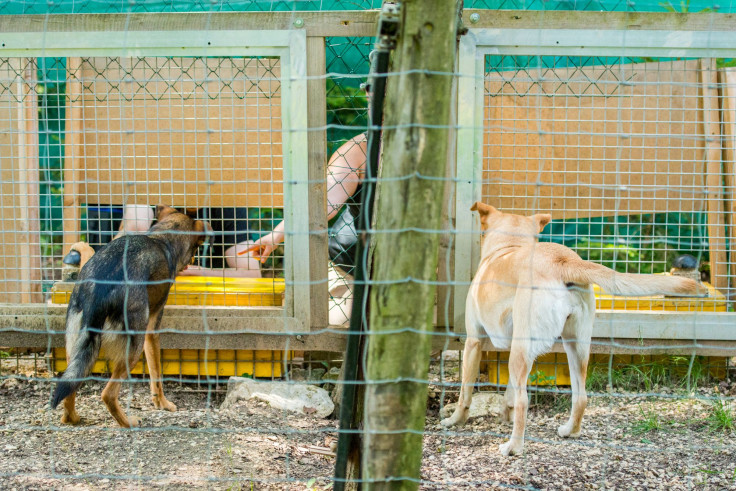Dogs Better Than Humans: Canines Strive For Equal Treatment

Dogs want to be treated equally, and that’s a natural trait, not one they learned from humans, research suggests.
Researchers tested both wolves and dogs that lived in packs, as opposed to pet dogs, to determine how sensitive they were to inequity, offering unbalanced rewards in experiments, a study in the journal Current Biology found. The canines were paired off, and when one partner received a reward but another did not despite performing the same action — pressing a buzzer after being asked to by their trainer — the jilted dog or wolf responded negatively, refusing to cooperate in further experiments.
Read: German Shepherds Can Diagnose Cancer By Smelling You
Scientists saw the same response when one dog or wolf received a lower-quality reward than its partner.
Animal experts previously proposed dogs acquired the trait as ancient humans were domesticated wolves. But the fact that both wolves and their domesticated kin reacted in the same way to inequity suggests it is a response they acquired from a common ancestor as opposed to one that dogs picked up from being around humans.
In fact, wolves were even more sensitive than the dogs during the study, requiring more coaxing to press forward after being treated in an inferior manner. And once the experiments were done, those wolves kept their distance from the humans involved while the pack-dogs did not display such trepidation.
Human beings receive the most attention for their ability to show awareness of equal or unequal treatment. “Sensitivity to inequity is thought to be an important mechanism for recognizing undesirable cooperative partners and thus crucial for the evolution of human cooperation,” the study said. But humans are not the only ones with this trait. Some of our primate cousins have also shown this type of cooperative behavior although other species do not. Pet dogs have also shown some sensitivity to inequality.
With these latest canine experiments, “results suggest that the inequity response found in pack-living dogs and wolves is comparable to that observed in nonhuman primates.”
And that response is probably linked to other wolf and dog behaviors, namely their ability to cooperate. The study noted wolves work together to hunt, raise their young and defend against threats in the wild.
Read: Creepy Wild Dogs Laugh to Scare Off Cheetahs
The wolf and dog response to inequity was limited, however. During the experiment, the animals were not as averse to performing the experiments without a reward when there was no partner getting better treats.
“This showed that the fact that they themselves had not received a reward was not the only reason why they stopped to cooperate with the trainer,” researcher Friederike Range said in a statement from the University of Veterinary Medicine, Vienna. “They refuse to cooperate because the other one got something, but they themselves did not.”
Hierarchy also played a role: The top dogs were used to their status, so they became more frustrated when they were not as well rewarded as their partners.
© Copyright IBTimes 2025. All rights reserved.





















